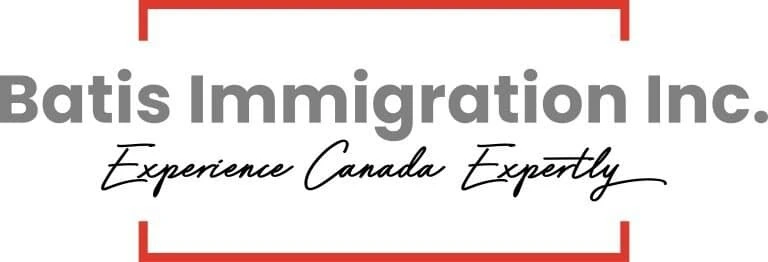Your initial residence in Canada as an immigrant is probably going to be an apartment or house that you rent. To ensure that renting your

Your initial residence in Canada as an immigrant is probably going to be an apartment or house that you rent. To ensure that renting your new home will give you a safe space where you can start adjusting to your life in Canada, it is crucial to understand your rights as a tenant.
Distinct provinces and territories may have distinct rules governing landlord and tenant obligations. These laws are regulated by government agencies or ministries in each province or territory.
Table of Contents
1. Obligations of the Tenant
You are typically in charge of as a tenant:
- Paying your rent promptly and in full.
- Maintaining a spotless and well-maintained home.
- Whenever something needs to be maintained or repaired, get in touch with the landlord.
- Allowing the landlord or management to enter your home to make repairs or, if you’re moving out, to display the place to other renters. To access your apartment, your landlord must first give you notice.
- Upon the lease’s expiration, leave the premises.
Additionally, tenants normally are prohibited from:
- If repairs are made carelessly, withhold rent.
- Without the landlord’s consent, make improvements to the property.
- Changing the home’s locks without the landlord’s consent.
- Without the landlord’s approval, sublet, or transfer the lease to another party.
2. Duties of the Landlord
Your rental home or building’s owner is referred to as a landlord. To manage and collect rent for larger properties, the landlord may employ a superintendent or property manager.
Typically, the following are your landlord’s duties:
- Taking rent collections.
- Preserving the structure’s or home’s integrity and safety.
- Supplying all the amenities that are a part of your rent and come with the unit (such as the heating, stove, and so on).
- Handling broken household appliances and paying for repairs.
- Utility services like electricity and hot and cold water must be provided by your landlord, but they may or may not be paid for as part of your rent.
- Cable TV and Internet service must frequently be purchased and paid for independently by tenants.
- Your landlord cannot take any of your belongings without a court order for them to do so, nor can they restrict how you use and enjoy your house.
3. Signing a Lease
A “lease” is a formal written document outlining all the details of your renting arrangement with the landlord. Because a lease is a legal agreement, it’s crucial that you fully comprehend it before signing.
Most leases often include the following:
- Your and your landlord’s names and contact information.
- Your rental address, either home or apartment.
- You have agreed to pay monthly rent.
- The time when rent is due and the maximum amount that the landlord may raise the rent in the future.
- The length of the rental agreement (such as a year or a month-to-month arrangement).
- The terms of terminating or canceling your lease.
- Conditions for renting out the home to others.
- A list of the maintenance or repairs you must perform on your own.
- Other restrictions (such as whether you are permitted to smoke or own a pet).
- Specifics regarding when and how your landlord may access your home.
- Procedures for amending the lease or settling disputes.
4. What Landlords May Query You
Legally, a landlord may inquire of you:
- The amount you make so you can pay the rent.
- Number of individuals will reside there.
- If anyone on the property smokes or if you have any pets.
- The go-ahead to do a credit check.
- Reference checks with your former landlords or employers.
A landlord could ask for certain personal information to enable them to carry out a credit check before deciding whether to rent you a house. According to the Personal Information Protection and Electronic Documents Act (PIPEDA), all landlords in Canada are required to abide by the law. This Act requires your permission before a landlord can disclose your personal information to any third party, including a credit reporting organization.
5. No One May Be Questioned By a Landlord About
- Regarding your sexual preference, religion, and ethnicity.
- Pertaining to your Social Insurance Number (SIN).
- About your marital status.
- If you intend to have additional kids.
- Whether relatives are visiting.
6. Rent Increases
While a lease is in effect, it usually stays the same; however, your landlord may increase it when you renew the agreement. By province and territory, there are differences in the frequency and magnitude of increases. If your cost is going up, your landlord must provide you with 90 days’ notice. If you weren’t given the right amount of notice, you might be eligible to delay paying the increase until the landlord provides a proper notice.
Normally, landlords are only permitted to raise your rent once a year and only by a predetermined maximum amount determined by your province or territorial government. For instance, if a tenant has a fixed-term lease, the landlord is only permitted to raise the rent by a maximum of 2% in British Columbia. Without seeking permission from the landlord and tenant board, a landlord in Ontario is permitted to raise the rent by a maximum of 2.5%.
7. Tenant Evictions and Complaints
When it comes to eviction, both tenants and landlords have rights. Landlords are protected against problematic renters, and tenants are protected against unjustified eviction.
If you have broken any of the terms of your lease or rental agreement, your landlord may evict you. Each province or territory has its own eviction laws that a landlord must adhere to, however, you cannot be evicted and removed from the property right away.
The following lease or rental agreement infractions would result in eviction:
- Failing to make rent.
- Unacceptable noise.
- A dwelling that is disproportionately unclean.
- There are more persons present than permitted by the leasing agreement.
When renting a home, you must take the necessary actions and precautions to notify your landlord and the relevant rental authorities of any problems.



